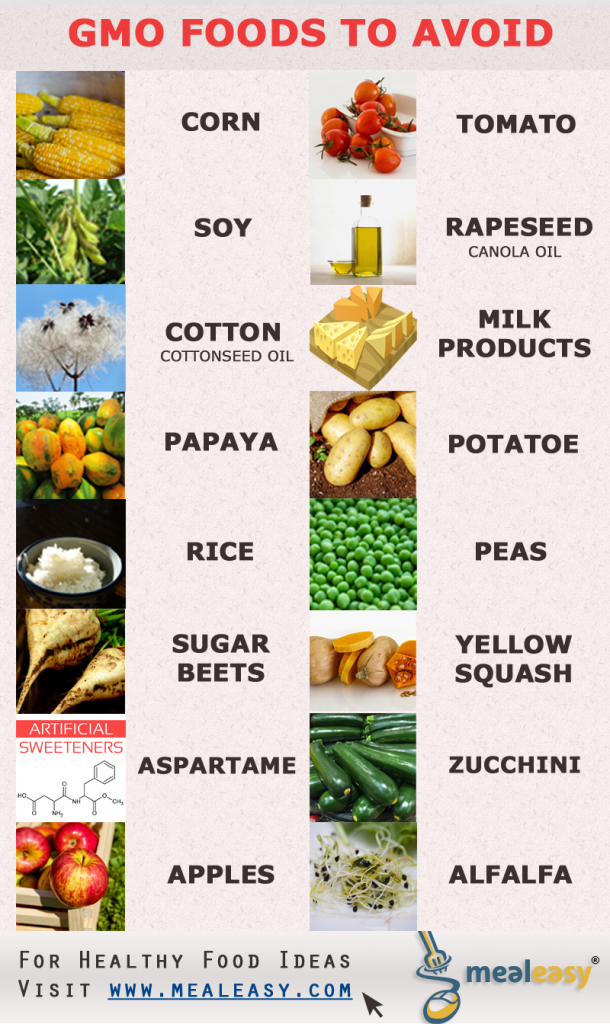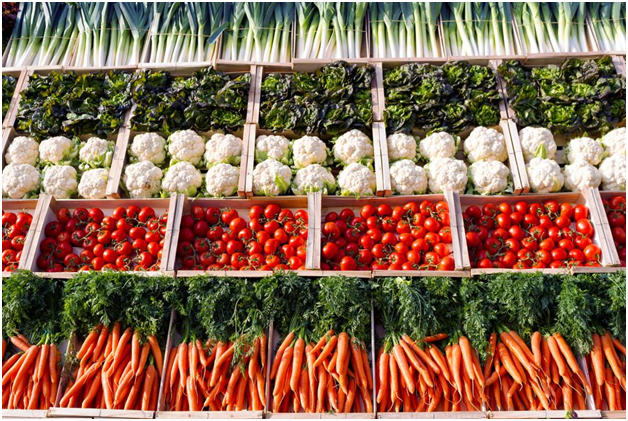Believing And Having A Plan Will Change Everything!
January 11 2017
It’s a proven fact that 90% of traditional diets fail, so what is your chance of succeeding with a diet you may be considering for weight loss, or weight control?… 10%…. that’s all!!
Losing weight is one thing, keeping it off is another.
Planning is the key to your success; having a plan that is specific to losing weight is the ultimate solution to maintaining healthy weight for life.
BELIEVING CAN CHANGE EVERYTHING!
Believe that your decision today will make a huge difference in your life. It will be inspirational and rewarding experience bringing an incredible transformation into your personal life.
Your health; your family’s health; your family life; your self-esteem, all being affected.
- Believe that it is about the food we eat. How much we eat plays a role to some degree, but what we eat is what matters the most!
- Believe that healthy food can also taste good. Preparing your own food allows you to modify the taste to your liking, still keeping it healthy. Preparing your own food can also be so much fun and above all, it’s rewarding.
- Believe you can do it. Frustrating!? Trying to eat the right food can be frustrating. Having a plan to guide you in making decision with what to eat every day is the key.
Planning is smart; Planning is time saving; Planning is money saving, but about all planning gives you an overview of what you eating not just one day, but over several days which is what is important in achieving the ultimate control over your food consumption.
BUT, YOU MUST BELIEVE!
How do we know?
Well, 12 years of being involved with people like you, trying to make sense of where to begin and then how to make healthy eating a way of life, gave us a true sense of where the problem is and why weight problems have now reached epidemic proportions in North America.
The MealEasy® Weight Loss Meal Plan will help you to facilitate the change you may be considering. We have developed MealEasy to help people to achieve their goals. Why a plan? Because… “A goal without a plan is just a wish.” ― Antoine de Saint-Exupéry
For fast facts and helpful tips, please read on.
Sobering Facts About Being Overweight – What Can One Expect
- Significantly Shorter Lifespan
The top causes of death in the United States by far include heart disease, cancer, stroke, diabetes and dementia. They are all linked to being overweight. A recent 2014 study at McGill University, published in The Lancet Diabetes & Endocrinology found that being overweight shortens one’s life by almost a decade! Think about that for a moment… - Many Years Of Reduced Quality of Life
Not only that, but the study also found that it deprived people of 19 YEARS of healthy living! Imagine what you could do with those extra years! - The Problem Getting Worse
If that wasn’t enough, the obesity epidemic is getting worse! Efforts to slow it down are not working, because the root cause (the poor quality food choices we make) is continuing to be ignored. For the first time in roughly 20 years, a National Center for Health Statistics (NCHS) study has shown a decline in life expectancy, which is believed to be in substantial part due to the growing obesity issue.
That is so scary! So, were do we go from here? Let’s look for the closest mirror we can find, look into it and say: Yes, I am worth it and I owe to myself and my family… and then do it! Do it NOW! There is no other way and the longer you wait the harder it gets. The time is now!
Were do I start?
- Start By Eating More Fresh Whole Foods.
The foods we often eat are not suitable for human consumption. Don’t give it to your pets either, that is, if you love them!
1) Eliminate all processed foods from your kitchen. As many as you can to start with.
2) Eliminate all sugary drinks, snacks, and anything else containing sugar, artificial sweeteners (including diet soda), or high fructose corn syrup.
3) Stop eating out! You have no idea what’s in the food you eat, when you eat out.
- Educate Yourself
Start learning about proper nutrition. This includes buying and eating primarily whole food ingredients like fresh vegetables, fruits, nuts, whole grains, unprocessed meats and fish, etc. Read the labels on everything you buy. Pay attention to what you drink too (e.g. zero-calorie pure water is your best source of hydration – not manufactured drinks).
- Cook At Home
Only by cooking your meals at home from scratch, will you have total control of what you put in your body (MealEasy can help with that). It doesn’t have to be complicated and it doesn’t have to take lots of time… and yes it CAN taste amazing!
Responsibility Lays With Us
No government, food producer or school has responsibility for our own health – only we do, period!
Seek Help
Try MealEasy – Risk Free
In 2005 as a family we started MealEasy with your health in mind, to take all the guesswork out of making better food choices. Please consider taking matters into your own hands and sign up for any of MealEasy’s six plans including the Weight Loss Meal Plan. All are designed by professionals to be healthy and get you on the right track to improving your health one meal at a time.
The benefit of having a plan is in knowing ahead of time about choices you are making. Sporadic decisions lead to guesswork and wrong food choices!
Happy New Year!
January 02 2017
Wishing you all a new year full of good health and happiness from MealEasy!
Merry Christmas and Happy Holidays!
December 24 2016
May your holidays be filled with happiness, joy, good food and health!
Best wishes,
From MealEasy
Genetically Modified (GMO) Foods To Avoid
November 17 2016
 In recent years there has been great controversy on the use of genetically modified foods; sometimes referred to as genetically engineered foods or Genetically Modified Organisms – or “GMO”. This has particularly become a growing issue in the USA and Canada, and affects large portions of our food supply and potentially the health of everyone!
In recent years there has been great controversy on the use of genetically modified foods; sometimes referred to as genetically engineered foods or Genetically Modified Organisms – or “GMO”. This has particularly become a growing issue in the USA and Canada, and affects large portions of our food supply and potentially the health of everyone!
If you value your own and your family’s health, please read this important article that can protect and improve one’s health for years to come!
Please share and help spread the word.
What Are Genetically Modified Foods?
GMO foods are foods that have been modified from their original natural form as found in nature using genetic engineering techniques that alter the DNA structure of the food.
Genetically modified foods also include modification to livestock, and seafood products.
Why Is It Being Done?
These techniques allow for industry to introduce new desirable traits to foods. Examples include better resistance to pathogens, herbicides and to help improve the nutrients provided.
The underlying reason is to maximize production and sales of food. This includes:
- Increasing the crop yields for farmers
- Adds more nutritional value to crops
- Reduces the need for pesticides
- Helps to decrease food prices for consumers
- Increase profits for food producers
- Industry testing indicates it is safe for human consumption
What Foods Commonly Contain GMOs?
While browsing the isles at the grocery store, be on the look out for the most common foods that are likely to be genetically modified, unless otherwise labeled.
The most common foods include corn, soy, cotton (used to make cottonseed oil), papaya, rice, sugar beets (commonly used to make sugar), aspartame (a common artificial sweetener), tomatoes, rapeseed (used to make canola oil), milk/dairy products, potatoes, peas, yellow squash, zucchini, apples and alfalfa; in no particular order.
Note that this list applies to ANY products that are derived from these ingredients!
More recently animal based products such as salmon have begun to be introduced to Canadian and USA food supplies, without the necessity to label them as GMO foods.
Are Genetically Modified Foods A Problem?
There is lots of controversy on the use of GMOs. Some of the main concerns include:
- Increasing Use Of Pesticides: Most GMOs are designed to require the use of pesticides and herbicides. Manufactures have suggested that use of GMOs would reduce the need for these chemicals. Unfortunately, this does not seem to be the case, with the use of pesticides/herbicides increasing instead, according to this recent study.
- Health Risks: According to Jeffrey Smith, a leading national expert on the dangers of GMOs, we don’t know for sure if modifying genes can lead to increased health risks including:
- The possibility of releasing more allergens, toxins or the introduction of new diseases.
- The negative effect of herbicides on human intestinal bacteria and diseases related to intestinal health.
- Increased risk of cancer according to recent peer reviewed studies.
- No Long Term Studies: The data is still not in as to the long term effects of genetically modified food consumption. It remains to be seen if it is truly safe for people to eat on a continuing basis. The FDA has not conducted such studies before approving the use of GMOs.
- Environmental Impacts: Both GMO crops and the increased need of pesticides/herbicides negatively impact the environment. Increased use of pesticides and herbicides pollute the air, water and soil in which they are used. Use of GMOs cause cross-pollination issues with other plant life, destroying natural plant life, and causing additional unknown consequences and once they are introduced to an environment their effects are there to stay.
Farmers and studies have also confirmed increasing numbers of superbugs and superweeds that are becoming more and more of a problem as a result of the use of GMOs.
What Can We Do?
It’s becoming increasingly difficult to know what food is in fact genetically modified. Due to new legislation and push from the industry giants, labeling of GMO foods is being allowed to be hidden from consumers who want to make an informed decision when buying food. As a result of corporate interests driving government policies, it is not required by law for foods to be explicitly labeled as genetically modified in the United States.
New law states that food must be identified using obscure methods such as a website address, QR code, or telephone number placed on food products. In Canada there are no requirements for labeling of GMO foods.
Here Are Some Tips to Help You Avoid GMO Foods
- Avoid Processed Foods: In fact, if you buy processed foods you are very likely to be eating GMO foods more often than not.
- Buy GMO Free or Organic: Whenever possible buying foods marked as “organic” or “GMO free” can help. It should be noted that “organic” does not necessarily mean “GMO free”, however, items labeled as organic do need to be 95% GMO free.
- Reduce Your Exposure: Limit your consumption of commonly affected foods or look for GMO-free versions. Especially for the most commonly affected foods (see the list of common GMO foods here).
Making your own meals and having full control of what you put in your body and your family’s stomach is key. By planning ahead and using smart planning tools such as MealEasy, it’s easier than you think!
The Hidden Dangers of Processed Foods
October 12 2016
Did you know that the eating processed foods is one of the leading causes of major health issues and weight problems? You may unknowingly be eating these unhealthy foods routinely. Find out how to reduce your consumption of these deadly foods. Do so and you can improve your wellbeing significantly, safeguarding your most precious asset – YOUR HEALTH! 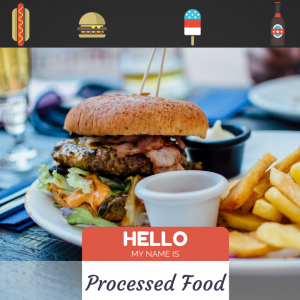
You’ve likely heard the words “processed food” in the past, and perhaps don’t think of it much while browsing the isles at the grocery store each week.
You may be wondering “What are processed foods?”… Well, you can think of them as any food that is unnatural, or does not occur naturally in nature. This includes foods that have been altered from their original form by addition of additives, preservatives, hormones, vitamins and minerals, heat treatments (that destroy natural enzymes), fatty acids, chemicals or that contain genetically altered ingredients.
Why Do Processed Foods Exist?
There are several reasons including to prolong the shelf life of the food, “enhance” flavor, make the food more esthetically appealing, and in general to try to get you (the consumer) to buy more and reduce associated cost to the food producer. Most processed foods are design with convenience in mind, ahead of your wellbeing.
Types of Processed Foods
Browsing the grocery store, you’ll begin to recognize that more and more of the foods we eat today are processed in some form. We as consumers need to keep our eyes open when purchasing food. This includes reading labels. It’s our own responsibility to choose what we eat carefully and individually to take control of our own health – no one else will do it for us!
In general most foods that are packaged, canned, or in some cases frozen are very likely to be processed in some form. Many have a very long shelf life.
More specifically, you’ll likely want to avoid these common culprits:
- Refined sugar including its variations such as corn syrup / high fructose corn syrup, dextrose, fructose, maltodextrin, sucrose, etc.
- Refined carbohydrates such as items with refined white flour.
- Artificial sweeteners such as aspartame (Equal / NutraSweet), Neotame, Saccharin (SugarTwin / Sweet’N Low) and Sucralose (a.k.a. Splenda)
- Chemically processed foods including artificial coloring, flavors, added textures or food additives.
- Soft drinks, or drinks with added sugar (including any of the refined sugar or artificial sweeteners, colorings or flavors)
- Fast foods
- Junk food
- Processed meats
- Frozen foods
- Refined wheat flour, including bleached white flour
- Boxed food items
- Margarine and hydrogenated vegetable fat
- Refined vegetable oil
- Canned items
- Genetically Modified Organisms (GMOs) and Foods – Hint: By avoiding the foods listed above, it will help reduce your exposure to the ever increasing use of unnatural and potentially detrimental effects of genetically modified foods that are more commonly used in processed foods.
In addition to avoiding the foods listed above, whenever possible it’s advisable to eat organic products including produce, milk product and meets, as organic foods are subject to less processing and reduce to odds of the damaging effects of processed foods. The more processed foods you eat, the more you are subjecting your body to its dangers.
Before explaining the dangers, it should be noted that not all processed foods are bad food choices. Though it’s always preferable to eat fresh whole foods that resemble their most natural form, some processed foods can be eaten safely as part of a balanced diet, and/or in moderation. For example, frozen vegetables or fruits are not necessarily bad choices though fresh alternatives of course are healthier.
The processed foods that are of concern are more so the chemically processed foods.
What Are the Dangers of Processed Foods?
There’s no question you want to slash your risk of disease, improve your overall health and live a longer happier life. We all do, but most of us don’t take action and don’t realize the MOST EFFECTIVE way to achieve this is by paying closer attention to what we eat!
Studies confirm that the effects of processed foods are making us sicker, fatter and shortening our lives at increasing rates.
Processed foods generally contain high amounts of refined sugar and/or carbohydrates (see the list of “refined sugar” types above). This is a major concern, as the human body was never designed to eat so much sugar. Excessive sugar consumption has been linked to many diseases including Alzheimer’s disease, diabetes, heart disease, obesity and even cancer. Consuming too much refined carbohydrates in general can also lead to issues such as insulin resistance; a precursor to many chronic diseases.
You are likely unaware of just how much sugar is in typical items you use regularly. Items that may not seem like they contain much sugar, in fact have very high amounts and it all adds up throughout the day.
On top of this, processed foods contain artificial ingredients such as preservatives, colorings and flavors that are designed in the interest of food manufactures, and not your health. Studies confirm that many of these have been linked to allergic reactions, cancer, and other diseases.
Another major issue is the amount of unhealthy fats, known as trans fats. These fats are commonly used in processed items, and has been linked to many health issues including heart disease.
These convenience foods also lead to one of the developing world’s biggest issues… obesity. Processed foods generally have much more calories vs natural alternatives and have less fiber content. This leads to eating too many of the wrong type of calories and in the end, weight gain.
|
Interestingly, recent studies on saturated fats and heart disease, show whole food sources such as eggs, dairy products, meats, etc. are healthy to eat and are not linked to heart problems; so long as trans fats are avoided.
Think twice when you eat processed foods – they’re more dangerous then they may seem.
What Should You Do?
Thankfully, there is an easy solution. All you need to remember is to buy mostly whole foods, and minimize processed items. Be mindful of what you are putting in your grocery cart.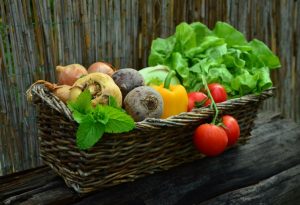
Think of it this way: If it wasn’t in that form in nature, there’s a good chance it’s not the best food choice that your body was designed to eat.
Look for fresh vegetables, fruits, unprocessed meats, eggs, nuts, seeds and avoid boxed items, cans, and convenience foods and make your meals at home.
An easy way to improve your health and avoid the dangers of processed food is to have a plan about what you will eat and to make meals from scratch at home. By doing so you avoid unhealthy purchases, and know without a doubt you are eating the right foods for optimal health and wellbeing.
If you would like help planning whole food meals please consider joining MealEasy. All of our meal plans are based on using unprocessed whole foods. You’ll see step-by-step how to make a huge variety of delicious healthy meals the easy way. Improve your diet significantly by giving it a try.
Top Weight-Loss Friendly Foods To Add To Your Diet
September 02 2016

According a report published in JAMA Internal Medicine, more than one-third of Americans are obese and overweight. Obesity is a common condition that causes life-threatening health issues, including heart disease and type 2 diabetes. Continue reading
Gluten Allergy – What To Avoid And What To Eat
August 29 2016

Are you allergic to gluten? Although “gluten-free diet” is the latest buzz word, not many people know what‘gluten’ really is.
Gluten is a type of protein found in certain grains, wheat, rye and barley. It consists of proteins known as gliadin and gluten in, which can be detrimental to some people’s immune system. Continue reading
Most Health Issues Are Related To Food – That Means There IS HOPE You Can Cure Your Problem!
August 01 2016
In today’s fast-paced life, we often don’t think about the true root cause of most of our health problems. More often than not it is the food we eat – no matter what conventional health care professionals tell you… 
WHAT YOU EAT MATTERS AND IT HAS INCREDIBLE POWER TO CURE YOU OF THE WORST HEALTH CONDITIONS!
Recent studies have linked the food we eat to leading chronic diseases. What it also means is that the food we eat can also have a profound effect on our health!
Can Even Cancer Be Prevented Or In Some Cases Even Cured With The Food We Eat?
Yes it can. Just think about it! According to recent statistics, 1 in 2 men and 1 in 3 women is expected to be diagnosed with cancer in their lifetime. Cancer is the dreaded word none of us want to hear from our doctors, but it’s just all too common.
Conventional medicine will have you believe that the front line approach is radiation, chemo, and surgery. The system is in place and will have you believe you have no control. Although success  rates of some cancer treatments have improved, the success rate of many forms of cancer have not improved significantly over the years, and the conventional treatment for the other forms of cancer is often just as bad as the disease, due to the suffering induced from the treatment itself.
rates of some cancer treatments have improved, the success rate of many forms of cancer have not improved significantly over the years, and the conventional treatment for the other forms of cancer is often just as bad as the disease, due to the suffering induced from the treatment itself.
Doctors have good intentions, but are unaware of the effectiveness of alternative treatment choices. To learn more about alternative tried and proven cancer treatment alternatives please visit our trusted friends at The Truth About Cancer.
It turns out people are getting cured successfully and PERMANANTLY using natural methods that use food as a primary key form of medicine. In most cases, we bring on our own disease due to our lifestyle and in very large part due to what we eat.
Did you know recent studies have shown:
- Eating just 10 grams or more per day of button mushrooms per day reduced breast cancer rates by about 64%! And by also drinking green tea reduced breast cancer rates by up to 89%! The results are incredible.
- Berries contain ellagic acid and have been shown in lab studies to reduce esophageal cancer 30-70% and colon cancer rates by 80%! The research is encouraging to say the least.
- Many patients have reversed their cancer diagnosis by following specifically designed diets, such as the well-established Gerson Therapy alone, primarily based on juicing and using natural nutrients to heal ones’ body.
Food has the power to heal us, IF we choose to use food as our medicine. We encourage you to be your own body’s “best doctor” and search for the truth about how to reverse and prevent cancer naturally – your doctor and/or the medical establishment are unaware that natural and effective treatments DO EXIST RIGHT NOW to cure even stage 4 cancer in some cases and this degree of cancer is typically thought to be incurable.
What About Heart Disease? Can It Be Cured Without Surgery?
YES – Absolutely! A large part of reversing heart conditions is related to our lifestyle and in particular our diet.
Eat the right food and follow a healthy lifestyle and you may not need surgery, even if your surgeon told you that it’s imperative and urgent! A bold and profound statement, but read on…
Dr. Julian Whitakar is the author of author of Reversing Heart Disease, Reversing Diabetes, and Reversing Hypertension and founder / past president of the American Preventive Medical Association. He states “bypass surgery does not prevent heart attacks or save lives in close to 90 percent of people who receive it”, a 1977 study showed no benefits, though it’s still blindly being done today!
MUCH safer alternative methods exist, and a key part of it is diet and lifestyle.
Let’s stop and consider safer common sense options, before we fall victims of the routine and established practice to cut first, and consider “alternative” approaches second. Freedom of choice applies to choices we make when it comes to our health. Consider alternatives when a conventional medical treatment is offered. Alternative treatments do exist and often the results are profound and superior to the conventional options. Educating ourselves and finding a practitioner we can trust can save our life.
Will You Consider Your Food As Your Primary Medicine?
Heart disease and cancer are the top two causes of death in America today, accounting for over 46% of all deaths!
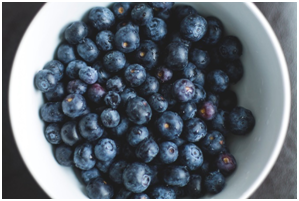 Our body has the astonishing power to renew itself given the right fuel. Imagine what you could do by simple eating better…
Our body has the astonishing power to renew itself given the right fuel. Imagine what you could do by simple eating better…
Think about it: What are you fueling your body with each and every day?
Start with whole foods that are made of raw ingredients and avoid unhealthy packaged and processed foods. That means:
- Include lots fresh vegetables in your diet
- Eat organic and avoid genetically modified foods (GMO)
- Avoid boxed and packaged foods
- Avoid processed meat (that studies now show as linked to causing cancer)
- Eliminate entirely all artificial sweeteners (extremely unhealthy and linked to many diseases and obesity)
That’s just a starting point to get you on the right track, but it can be life changing if you decide to commit to it.
Planning ahead gives you a major advantage and ensures the food you are putting on your plate is beneficial to your health.
MealEasy® meal plans all follow natural health principles, so whether you want to generally improve health, lose weight, improve your heart health, or combat diabetes, there is something for everyone. Check out our heart healthy, weight maintenance, balanced and pre-diabetes meal plans today.
Diet And Diabetes – Is There A Connection?
July 28 2016
Diabetes is a long-term medical condition that has been on the rise in recent years. The Journal of the American Medical Association states that more than half of U.S. adults have diabetes or pre-diabetes. And even though its causes may vary, a poor diet is one of the causes of diabetes.
Unhealthy dietary choices cause obesity, which increases the risk for diabetes. Consuming unhealthy calories,can increase your body’s resistant to insulin. This causes irregularity in the blood sugar level.
It is, therefore, imperative to adopt a well-balanced diet to prevent or control diabetes. Whether you have pre diabetes or type 2 diabetes, here are simple ways to embrace a healthy diet:
What constitutes a healthy diet
A healthy diet entails a variety of foods. The key is to eat smarter. Try to consume a wide range of food items that are full of quality nutrients. Last, but not least, keep an eye on your portion size.
Vegetables
Increase your consumption of raw or cooked vegetables. Vegetables consist of minerals, vitamins, fiber and phytochemicals. They also have few calories and carbohydrate. The best choices include non-starchy veggies, such as carrots, celery and cucumber. Most of these items are available all year around.
Similarly, green vegetables have been associated with decreasing the risk of developing type 2 diabetes.
Fiber-rich foods
Fiber controls weight and blood sugar level. Thus, it is essential to prevent or control diabetes. You can choose from a variety of fiber-rich foods, such as lentils, beans and artichokes.
Protein
A balanced diet includes protein. But choose your protein carefully. This is because some protein sources have a lot of saturated fat. Your best choices are fish, plant-based protein, cheese and eggs, and chicken and other poultry. Remember to consider your portion size.
Sweets, carbs and fats
The human body needs carbs, whether you have diabetes or not. Carbohydrates affect the blood sugar level. They create glucose that enters the bloodstream.
The type and quantity of carbohydrates you choose will have an impact on your diabetic condition. Stick to high-fiber complex carbohydrates. Since they are digested slowly, they prevent your body from producing too much insulin.Moreover, limit your consumption of refined carbohydrates –pasta, rice, soda, packaged meals, among many others.
When it comes to fat and sweets, you don’t have to eliminate them entirely from your diet. Instead, have small portions of sweets or better yet choose healthier natural sweeteners. Furthermore, consume less unhealthy fats – saturated and Tran’s fats. Instead, focus on Omega-3 fatty acids and monounsaturated fats – almonds, olive oil and more.
If you are looking for more information on a pre-diabetes meal plan, consider subscribing to our program and get access to quick, easy recipes for diabetes prevention.
5 Tips To Eat Healthy On A Budget
July 27 2016
Despite its unlimited benefits, healthy food is considered to be more expensive. According to a study by Cambridge University, healthy food costs three times as much as consuming unhealthy food.
So should we use this to justify eating the “unhealthy” food that is often not even fit for human consumption? We also need to ask ourselves if our health is worth the savings and then, should we be even comparing? There are huge savings to be realized by making our own meals, which by far outweighs the “additional” cost for the “healthy” food.
Let’s look at it this way: Would you put cheap oil in your car’s engine to save $20.00, if you knew it could cost you $600 in repairs down the road? And here we are talking about our health, not a car engine.
If money is still an issue, there are plenty of practical ways to reduce expenses.
Here are 5 tips that can help you eat well-balanced foods on a budget:
Buy seasonal produce
Purchase seasonal food to save money. Not only do seasonal fruits and vegetables taste better, they often cost less than off-season items. Since seasonal produce is in abundant supply, it costs less than foods that are out of season.It’s a good idea to stock up on these items.
Buy in bulk
Another great way to save money and time is to purchase food in bulk. Although bulk purchases entail a hefty cost, it really saves money in the long run.
Buy seasonal produce and grains in bulk, whenever possible. Make sure to store them properly in air-tight containers, so that they don’t go bad.
Similarly, you can purchase large quantities of meat and then freeze or use smaller portions for use later on.
Use leftovers
Try to cook large portions. If you are left with leftovers, don’t discard anything. You can reuse dinner leftovers as a scrumptious homemade lunch. Furthermore, you won’t have to make multiple meals throughout the day.
You can even freeze your dinner leftovers and then reheat them later on as convenient lunches or dinners. To help you with this, MealEasy meal plans show you which meals are freezable.
Eat more beans and whole grains
Try to eat more beans and whole grains than meat. Black beans are packed with folic acid, fiber and potassium. They cost $0.30 per 1/2 cup or $1.50 per can. Moreover, quinoa and brown rice are delicious yet economical healthy food items. Purchase these items in bulk. You can use them immediately or store them for later use.
Plan and prep meals
Most importantly, plan your meals ahead of time, to help you not only to balance your nutrition, but also to balance your budget.
Planning ahead not only gives peace of mind knowing what your next meal is going to be,but by having a shopping list generated as part of the plan,you will avoid spontaneous purchases that can add to the cost of groceries,for food you don’t really need.
Making homemade meals has so many benefits vs eating out, as described in this informative guide.
For the most efficient online meal planner, we have got you covered. MealEasy provides an array of low-cost meal plans to help families save on groceries and the cost of unhealthy eating. To keep your costs down, MealEasy indicates which meals are lowest cost, while ensuring they are healthy. In addition, the online portal features other meal plans, which include heart-healthy meal plans, and vegetarian meal plans – among others.




